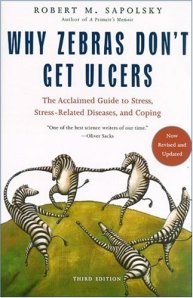 Ok, don’t get me wrong. I’m no techno-phobe. I email and facebook and text and pix message. I don’t know what I’d do without the internet. I am newly addicted to my Kindle and here I am learning to blog. I love all that technology lets us do. We can take action on a global scale to help those in need halfway around the world, we can share scientific breakthroughs with medical labs and political advocates everywhere, and we can keep in touch quickly and easily with friends we haven’t seen in years.
Ok, don’t get me wrong. I’m no techno-phobe. I email and facebook and text and pix message. I don’t know what I’d do without the internet. I am newly addicted to my Kindle and here I am learning to blog. I love all that technology lets us do. We can take action on a global scale to help those in need halfway around the world, we can share scientific breakthroughs with medical labs and political advocates everywhere, and we can keep in touch quickly and easily with friends we haven’t seen in years.
A fast-paced lifestyle.
All this technology is moving us faster and faster. That’s a great thing if we want to save a life, but how is it affecting our daily lives? The sense of urgency that all this technology creates makes it feel impossible to unplug for an hour and a half class, much less a whole weekend of hiking in the woods. What if something happens without me knowing about it?!
It’s so pleasurable to feel wanted. To feel needed. to feel that your response is the most important thing in the world to someone else. When they reply back instantly, you know that you are on their mind right now. You know you are the topic of someone else’s conversation. You can even participate in their conversation. Essentially you can be in two places at once.
Multitasking is a misnomer.
No one can do two things at once. Ok, maybe you can walk and breathe at the same time, but (unless you’ve had pretty radical brain surgery to split the hemishperes of your brain) you can’t focus your conscious attention on two tasks at one time. The best you can do is go back and forth between two (or more) tasks rapidly. You can’t pay attention in class and text at the same time. You can’t drive and text at the same time. You’re asking your brain to do something it isn’t capable of doing. Not to mention, you can’t see what you aren’t looking at. if you’re looking at a text screen, you’re not looking at your professor’s presentation or at the road in front of you. Anything can happen while your attention isn’t there. Paying attention in class might not be life or death, but paying attention while driving is. Check out this video and quiz on texting and driving.
What is so important?
I think we have to occasionally stop and ask ourselves what the most important thing is in any given moment. Live in the present. If the most important thing right now is conversing with your best friend, then do that, even if it is a few short texts. But if the most important thing is trying not to die while driving, then the texts will wait for a stoplight or rest area. If you’re in a conversation with someone, don’t you want to feel like the most important thing to the person you are standing in front of? What does it say when they quit focusing on you and text someone else? Maybe we all need to practice living in the moment a little bit each day. That’s the message of one of my favorite blogs, Positively Present.
What do you think? Has texting taken you away from living your life to the fullest? What happens when you unplug for a while?




